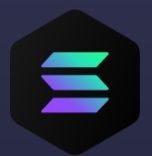Disclaimer: The information in this blog post is for educational purposes only and is not financial advice. Cryptocurrency markets are highly volatile and risky. Please conduct your research and consult a qualified financial advisor before making any investment decisions. The author and platform are not liable for any financial losses incurred.
Solana is a decentralized, open-source blockchain platform that was designed to support high-speed transactions and enable the development of scalable decentralized applications (dApps). Solana was founded in 2017 by Anatoly Yakovenko, a software engineer who previously worked at Qualcomm and Gauss Development.

One of the key features of Solana is its high transaction speed, which is achieved through the use of a proprietary proof-of-stake (PoS) consensus algorithm called Proof of History (PoH). This allows Solana to process up to 65,000 transactions per second, making it one of the fastest blockchain platforms in the market. In addition to its fast transaction speed, Solana is also designed to be energy efficient and has a low transaction fee, making it an attractive platform for developers and users.
Solana is used for a variety of applications, including decentralized finance (DeFi), gaming, and social media. Some of the notable projects that have been built on Solana include Serum, a decentralized exchange (DEX), and Raydium, a DeFi protocol. In addition, Solana has a strong developer community and has partnerships with a number of prominent companies in the blockchain and technology industry.
Solana claimed that they were able to handle 700,000 transactions per second, which was more than VISA's capacity of around 24,000 transactions per second. However, Solana's peak transaction rate had never exceeded 50,000 in the past. Their consensus mechanism was based on proof of history, which was similar to proof of stake but included a time variable. Proof of history was not a traditional consensus mechanism, but rather used timestamps to add date and time to the blockchain, allowing validators to know their order without the need for communication. One of the issues with other blockchain systems was the need to agree on time, but Solana's system did not require this.







